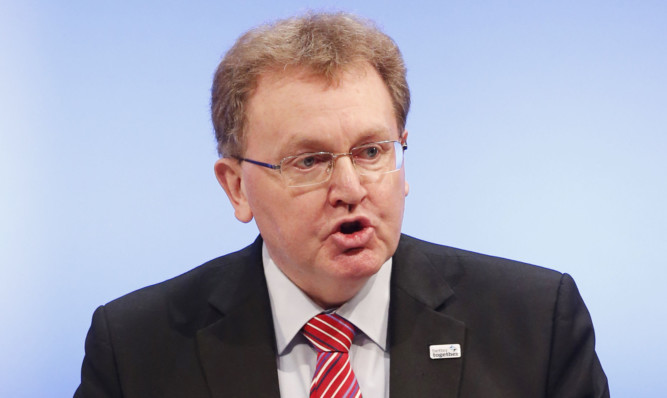Nicola Sturgeon has set aside the votes of more than two million Scots as “an unfortunate but peripheral setback on the road to independence” by pledging to set out the grounds for a second vote, according to Scottish Secretary David Mundell.
The First Minister has said the SNP will set out the timescale for a possible second referendum on independence in its manifesto for next year’s Holyrood election, along with the circumstances under which another vote might be “appropriate”.
Mr Mundell will attack Ms Sturgeon’s stance during a speech in Edinburgh to mark the first anniversary of the referendum on Friday.
Talk of a second ballot is out of step with what most Scots want, he is expected to say, and amounts to setting aside the “sovereign will” of the people, who voted 55% to 45% against leaving the UK last year.
“It is as though the votes of two million Scots can just be set aside as an unfortunate but peripheral setback on the road to independence,” he will say.
“We’ve had our say and we want to get on with our lives.”
Mr Mundell will also argue that independence is not, as some have suggested, inevitable.
Pro-independence campaigners have pointed to a surge in support for the SNP, including its Scottish landslide at the general election, as evidence of this.
“We’ve seen some big changes in Scotland as a consequence of the referendum,” Mr Mundell will say.
“But my case today is that those changes are aftershocks of the referendum, and not – as some have argued – a symptom that independence is inevitable. Far from it.
“Independence is not inevitable. Nothing that has happened since that decisive result makes independence inevitable.”
On the contrary, Mr Mundell will claim that if the union did not exist, it would be invented and people would vote for it.
“We must never forget that the people who benefit the most from the United Kingdom are not the strong and the successful, but the poorest, the weakest, and the most vulnerable,” he will add.
“Not just here at home, but around the world.
“The advantages Scotland enjoys by being part of something bigger were plain when an unprecedented number of Scots voted to endorse Scotland’s UK membership in the referendum last year. Those have become even clearer in the twelve months since.”
Such advantages include shared institutions like the BBC, the UK security service and the Department for International Development, Mr Mundell will say.
The pound sterling has continued to provide Scotland with the “safety and security which countries in the eurozone so patently lack”, he will add.
“We used to take these things for granted. The referendum campaign taught we cannot afford ever to do so again.”
